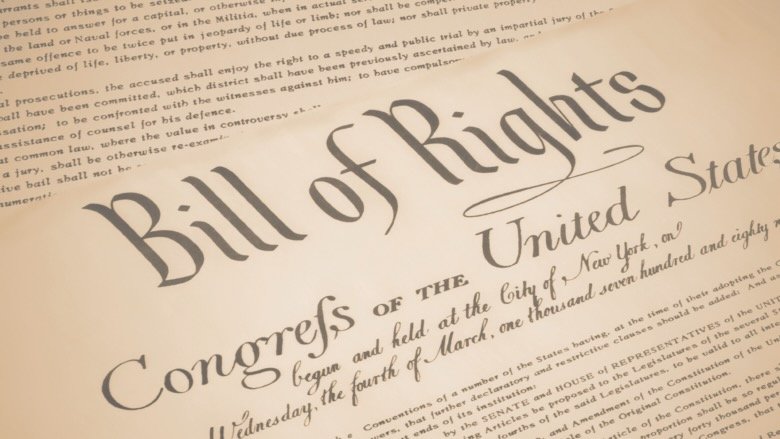
Check this page regularly for a collection of the most interesting and informative articles related to public records issues.

A Devastating Blow to Government Accountability in NC | Opinion
North Carolina’s Republican legislative majority, joined by a handful of Democrats, has decided that the state’s public records law shouldn’t apply to them. A supermajority of the General Assembly passed a sweeping legislative privilege Friday allowing lawmakers to keep secret any document made or received during their public service “in all instances.”

Accessing Weld County Public Records Now Requires Notary
The Colorado county’s sheriff’s office recently mandated that a notarized form is required to obtain public records. But critics worry the new rule is an unprecedented and unlawful burden.

“As Promptly as Possible”: When does a public records delay become a de facto denial?
If you make public records requests in North Carolina, you are undoubtedly familiar with N.C. law which requires a public body to furnish responsive records “as promptly as possible.” You have also likely experienced firsthand that “as promptly as possible” can mean different things to the requester and to the public body records custodian. How did we end up with this wording, and what have our courts said about public bodies that delay, delay, delay? What can you do to push back?

This bill could give Californians an ally on public record requests
A bipartisan bill would create a state ombudsperson to intervene when public records requests are denied. But an advocacy group is concerned that it will encourage state agencies to go to court. While previous bills failed, Assembly Bill 469 has passed unanimously through committees and the full Assembly.

New Jersey’s public records law is a ‘sword and shield’ against corruption, citizens say
(S)everal bills now in the legislative pipeline in Trenton would weaken OPRA, with proposals to let government officials cap the number and “scope” of requests people can make, bar people who are denied records from appealing to a judge right away, take more time to respond to requests, redact phone numbers, email addresses, and social media information from records, and exempt volunteer fire companies from OPRA.

Thousands of police discipline records could soon be public — for real this time
Thousands of police disciplinary records are expected to be released to the public as soon as this week, offering a long-awaited glimpse into police misconduct cases across the state.

Call for Proposals: Better ways to help collect, understand and preserve the public’s documents
MuckRock’s first two rounds of Gateway Grantees are using DocumentCloud to reveal those secretly profiting from the destruction of Brazil’s rainforests, probe police misconduct in Chicago and much more. Now’s your chance to pitch a project that uses primary source documents to help inform and strengthen the public while leveraging AI, distributed storage and other leading technologies, baked right into DocumentCloud.

California ballot proposal could make more government records public
The "Government Transparency Act" was filed with the California attorney general's office on Wednesday and, if approved by voters, would require lawmakers to provide details about their meetings with lobbyists, political fundraising events and investigations of misconduct. The measure would also set stricter standards for government agencies, mandating they more quickly and comprehensively provide documents to the public.

San Jose Warns Employees ChatGPT Use Is Public Record
The California city became one of the first to implement a strict set of guidelines for use of the artificial intelligence tool and clarified that ChatGPT is subject to the state’s Public Records Act. The city is making one thing clear up front: Be careful what you do with this new-fangled gizmo.

Can AI solve the government's giant, growing backlog of public records requests?
A few federal agencies have started to use sophisticated artificial intelligence tools to help deal with immense caseloads of Freedom of Information Act requests, but some transparency advocates warn that the government needs additional safeguards before more widely deploying the technology.

Doxing claim rejected by Oregon appeals court
In a case that tested Oregon's new anti-doxing law, the state Court of Appeals rejected a claim by Newberg school board members who sought compensation for social media postings they claimed were illegal sharing of private information.

ProPublica Partner Sues Mississippi County for Blocking Access to Search Warrants
The Northeast Mississippi Daily Journal has sued the state's Union County, asking a judge to order that search warrants in its county-level justice court be made open for public inspection.
The lawsuit comes after an investigation in 2022 by the Daily Journal and ProPublica found that almost two-thirds of Mississippi’s justice courts obstruct access to search warrants and to the affidavits used by police to obtain them.

Informed dissent: Toward a constitutional right to know
In this article, Martin E. Halstuk and Benjamin W. Cramer argue that the American judiciary should recognize a constitutional right of access to government information for purposes of self-government. This argument builds upon the “consent of the governed” ideals of John Locke.

Foundation overseeing Ohio opioid funds must make records public
Reuters reports that in a unanimous opinion, the Supreme Court of Ohio rejected OneOhio Recovery Foundation's argument that, as a private foundation, it was not subject to the state's public records law. The court found that the foundation was the "functional equivalent of a public office."

Board overseeing Pennsylvania's $1 billion in opioid settlements criticized for secret meetings
The Pennsylvania Opioid Misuse and Addiction Abatement Trust is responsible for ensuring that counties and other local governments appropriately spend hundreds of millions of dollars expected to come their way from settlements with opioid companies. That money is intended to help Pennsylvania respond to a crisis that kills thousands of people annually in the state. Before the trust held a public meeting in March, it had been meeting in secret for months

Members In the News: TransUnion Introduces TruLookup™ Veteran Connect Solution to Help State Agencies Better Serve Those Who Served
Recent TransUnion research finds veterans consistently moved across state lines at more than twice the rate of non-veterans over a five-year period.
U.S. veterans moved across state lines at more than double the rate of non-veterans over the past five years, adding to the hindrances facing Department of Veteran Affairs’ outreach efforts. For this reason, TransUnion (NYSE: TRU) today unveiled its TruLookup™ Veteran Connect solution to help state agencies more effectively provide services and support.

Lawsuit Challenges Law That Shields Home Addresses of Judges, Law Enforcement
A New Jersey law that shields the home addresses of judges and law enforcement officers from the public is unconstitutional when applied to journalists seeking to report on public officials, the American Civil Liberties of New Jersey argues in a new lawsuit targeting New Brunswick officials.

Editorial: L.A. city attorney’s attempt to weaken public records law is harmful and wrong
Hydee Feldstein Soto has launched a misguided effort to weaken the state’s bedrock government transparency law.
Fresh off an embarrassing attempt to claw back Los Angeles police officer photos the city released in response to a public records request, City Atty. Hydee Feldstein Soto has launched another misguided effort — this time to weaken the state’s bedrock government transparency law.

Wrap-up: Colorado legislature again shuns CORA cost reform in 2023 session but removes some obstacles for records requesters
CFOIC had hoped the CORA bill would curb the fees government entities can charge to process records requests, especially after an expected bill on this topic never materialized in 2022. We’ve sounded the alarm about expensive CORA charges for years and pointed out last summer that soaring inflation could boost the maximum hourly research-and-retrieval rate — currently $33.58 — to $40 or more when Legislative Council recalculates it on July 1, 2024, as the law requires.

Texas Public Records Transparency Bill That Got Lost Amid GOP Infighting Finally Headed to Governor’s Desk
State law allows government agencies to withhold or heavily redact law enforcement records if a person has not been convicted of a crime or received probation. If approved by Abbott, the bill would close a long-standing loophole in the law that government agencies have used to withhold information in situations in which suspects die in police custody, are killed by law enforcement or kill themselves, as ProPublica and The Texas Tribune reported last month.
